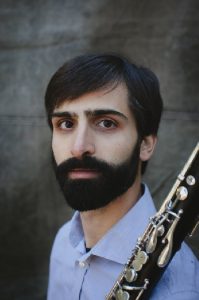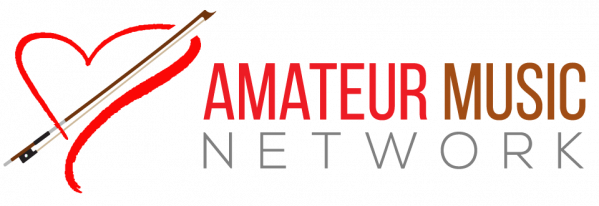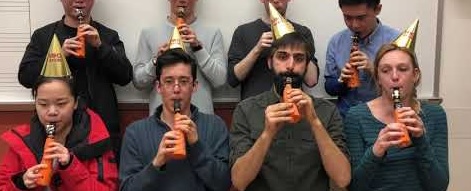Ever wonder what your clarinet could sound like if it didn’t have to sound “perfect”? On November 21, clairnetist Jeff Anderle will take you on a journey of musical discovery in our online “Weird Sounds for Clarinet” workshop, which promises to be fun, funky, and surprisingly practical.
We reached Jeff at his Oakland home to find out more about his own life in music—weird and traditional.

When did you start playing the clarinet?
I grew up in Walnut Creek, California. In fourth grade I joined my public school’s band program—something that many public schools no longer offer, unfortunately. My parents remember that I came home and announced, “I’m going to play the clarinet!” It was an extracurricular activity until partway through middle school, when I started taking lessons. When I applied to colleges, I still wasn’t sure I wanted to be a musician. I ended up going to UCLA and majoring in music, but also getting a broad, traditional collegiate experience as well. Then I got a masters degree at the San Francisco Conservatory of Music—where I’m now on the faculty.
How did you become interested in “weird sounds”?
It started when I was an undergraduate. I had an open-minded teacher at UCLA, and a couple of composer friends who would write stuff for friends to play. And I heard an important album, This Is Not a Clarinet, by Evan Ziporyn, which was released in 2001. The first weird sound I discovered for myself was slap tongue [producing a popping sound along with the note]. I discovered it by accident, because I couldn’t play bass clarinet very well then!
What makes a sound “weird”?
We have a school of “proper” sound production and timbre that we work on a lot. I’m interested in thinking a little outside that box—what happens when we break the rules? When we abandon traditional performance practice we can get some expressive, funny, or beautiful sounds. For example, a distorted guitar sounds like this—how can I create that sound on clarinet so I can be more expressive?
What have you been up to, musically, during the pandemic?
I’ve done some online projects with one of my groups, Splinter Reeds. And my bass clarinet duo, Sqwonk, released a couple of short videos. [Watch Sqwonk perform “Dear Theodosia,” from Hamilton.] I’ve had access to the San Francisco Conservatory of Music’s audio system, and we recorded the chamber orchestra part of Gordon Getty’s new opera, Goodbye Mr. Chips.
How should workshop participants prepare?
You don’t need any special equipment—just an open mind. Approach the hour with the mindset of “I’m not afraid to see what sounds I can make on my clarinet.” There are two sides to it: “I play the clarinet and want to explore new sounds” and “Once I know everything my instrument can do, then I’ll understand it better and my traditional playing will improve.” That sound you thought was a mistake is something you can do on purpose. And if you learn how to do it intentionally, you won’t do it by accident anymore.
You might also want to let your neighbors know it’s going to get a little weird!
For the San Francisco Conservatory of Music's 100th birthday in 2017, Jeff (front row, second from right) and his students played "Happy Birthday" on "carrot-nets."

